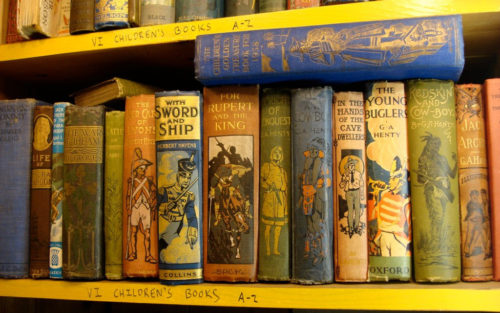As part of my efforts to meet people when I moved to Portland two years ago, I joined a meetup group. Six months ago, a handful of us started a monthly book club.The first month was a bit rocky——some people (myself included) were only partway through the book, and our host hadn’t found the time to read it at all——but we’ve found our stride, and there’s a small but consistent number of participants. Books are chosen by popular vote, and we’ve mostly ended up with science fiction and fantasy novels. We decided that for our next meeting, we would choose something from the classic literature canon.
I’ve read a fair chunk of the classic literature canon, thanks to my AP Language and Literature classes in high school and my English undergraduate degree. In deciding which novels would interest my book club comrades, I considered what I knew of the story, the writing style if I was familiar with it, and whether or not it was a translation (and how different translations would affect our opinion of the story). In spite of my personal interest in novels like Don Quixote, or my desire to read all of the Northanger Horrid Novels, I had to keep in mind my group’s available time and the kinds of stories that would interest them.
Classic literature takes effort. They’re stories written for an audience whose entire existence traveled at the speed of horse or train, free from the tiny, persistent distractions that plague our modern world; even as I write this, my attention has been pulled away to Snapchat on my phone, to the security settings on my computer, to the endless stream of news on Facebook. . . . It’s difficult for many people to find the time to read a book simply because of the time investment required, and reading classic literature demands your full and undivided attention.
So why do we continue to read these books? It could easily be argued that there are so many new books being written and published every day that there’s no room for them. While I do agree that they should not automatically be held in higher esteem than modern books, they must touch on some universal element of the human condition. Otherwise, they, like so many other books, would have been lost to time.
- A feeling of obligation. Not the best reason, of course, but it can be a matter of prestige and pride to be able to say you’ve read the classics. Or you might be called to do so for a class or a book club.
- To purposefully slow down. Making the effort to sit quietly and concentrate on a single task feels like stretching after a day of sprinting between notifications.
- For inspiration. These stories have survived for a reason; can they be improved upon, or given a new angle or a new twist? Who would these characters become in different circumstances? Is there another perspective worth exploring within the story? Or should it be rebelled against and completely redone?
- To learn from the past, or to live in it for a short time. We continue to reread the classics for the same reason there’s a new film version of Jane Eyre every five years or so: in spite of the realities of disease, poverty, and social immobility, we are, as a society on the whole, romantically nostalgic for what was in many ways a simpler time.
Whatever our motivations, we continue to read the classic literature canon. What draws you to (or repels you from) the classics?
P.S. We chose Agatha Christie’s And Then There Were None for next month. An isolated island, a series of mysterious deaths. . . . I think they’ll enjoy it.

